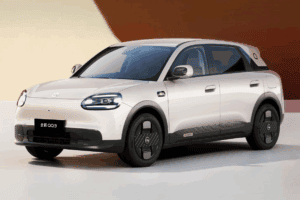Toyota's "plus-sized" Hilux will remain a left-hand-drive only model despite pressure from Australia to offer it with the steering gear on the right.

After a production run of almost fourteen years, one of the longest in the highly lucrative “full-size” American bakkie market, Toyota has officially unveiled the all-new Tundra that will enter production before the end of this year.
Now into its third generation, Toyota’s challenger to the US Big Three, the Ford F-150, Ram 1500 and Chevrolet Silverado 1500, as well as the latter’s upmarket GMC Sierra sibling plus Japanese arch rival Nissan’s Titan, boasts a completely new design and platform with the automaker branding it as “the toughest Tundra ever made”.
As before, the Tundra rides on the same platform as the Land Cruiser, albeit now the new body-on-frame TNGA-F architecture underpinning not only the Land Cruiser 300, but potentially also the next generation Hilux, Fortuner and Land Cruiser Prado.

Incorporating a design more aggressive than the previous model with elements of the Silverado and the Land Cruiser 300 present, the Tundra, in a reversal of the first two generations, eschews the single and half-cab bodystyles for a choice of three loadbed lengths in double cab or extended length CrewMax configurations.
Aside from the platform, Toyota has also made several further changes underneath the Tundra’s skin, namely constructing the chassis out of aluminium and lightweight high-strength steel while reducing the weight of the tailgate by 20% and fitting a brand-new front cross member.
ALSO READ: Fully detailed: Toyota Land Cruiser 300’s price and specification revealed
A departure from the segment status quo though is the suspension, which features a multi-link design at the rear Toyota claims has helped in improving the Tundra’s towing capacity to a maximum of 5 443 kg and upping the payload to 880 kg.

Standard on all four corners is a new twin-tube shock absorber setup with forged aluminium knuckles, while two first time options can be specified; a specifically designed Adaptive Variable Suspension system and air suspension at the rear that raises and lowers the overall ride depending on the selected mode; Normal, High and Low.
Aside from the standard Tundra, an off-road focused TRD Pro model once again tops the line-up with unique features externally comprising Fox shock absorbers, a TRD front stabiliser and TRD skidplate, red accents on the suspension, an LED light bar and all-terrain Falken tyres.
A less hardcore TRD Off-Road package is also offered, with the main difference being the inclusion of mono-tube Bilstein shocks rather than the Fox units. Both off-road models however come as standard with the Multi-Terrain Select system and Crawl Control.

Inside, the completely redesigned interior is highlighted by a standard eight-inch or optional, brand-new freestanding fourteen-inch touchscreen infotainment system, both with wireless Apple CarPlay and Android Auto, plus an optional 12.3-inch TFT instrument cluster.
Depending on the trim level, which comprises seven grades; SR, SR5, Limited, TRD Sport, Platinum, 1794 and TRD Pro, safety system in the Tundra includes Pre-Collision with Pedestrian Detection, Road Sign Assist as well as Auto High Beam Assist, Dynamic Radar Cruise Control, Rear Seat Reminder, Rear Cross Traffic Alert and Blind Spot Monitoring.
Like the Land Cruiser, the Tundra has also changed underneath the bonnet. In a reversal of the criticism that dogged its predecessor, the T100, the Tundra relinquishes its 5.7-litre V8 engine for a V6, more specifically the same twin-turbocharged 3.5-litre badged 3.4-litre unit used in the 300.

While hooked to the same ten-speed automatic gearbox, the twin-blown bent-six has been detuned from 305kW/650Nm in the 300 to 290kW/649Nm with the reason being the inclusion of a new hybrid powerunit positioned above it.
More than likely the same setup the Land Cruiser will use next year, the hybrid, known as i-Force Max, combines the V6 with an electric motor located within the bellhousing between the engine and transmission for a total output of 326kW/790Nm.
The outputs results in the hybrid Tundra being more powerful than the F-150 PowerBoost and Ram 1500 eTorque, though no towing figures were revealed.

As before, production will once again take place at Toyota’s San Antonio Plant in Texas with pricing for the entry-level two-wheel-drive SR anticipated to start at around $35 000 (R519 224).
Despite sporadic rumours of right-hand-drive availability with Australia being the main interest driver, Toyota has, for now, ruled the possibly of a right-hooking Tundra out.
Support Local Journalism
Add The Citizen as a Preferred Source on Google and follow us on Google News to see more of our trusted reporting in Google News and Top Stories.






